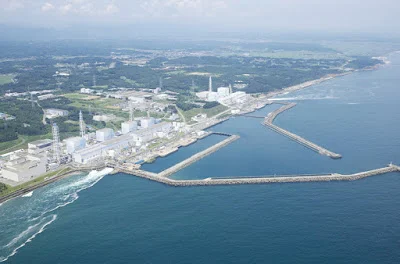Japan plans to release into the sea more than 1 million tonnes of contaminated water from the destroyed Fukushima nuclear station, the government said on Tuesday.
China's foreign ministry on Tuesday criticised the Japanese government's decision, calling it "extremely irresponsible".
In a statement on the ministry's website, a spokesman said Japan should refrain from initiating the discharge until it has consulted and reached agreement with all stakeholder countries and the International Atomic Energy Agency.
China reserves the right to respond further to the release of contaminated water, the spokesman said in the statement.
The move, more than a decade after the nuclear disaster, will deal another blow to the fishing industry in Fukushima, which has opposed such a step for years.
The work to release the water will begin in about two years, the government said, and the whole process is expected to take decades. "On the premise of strict compliance with regulatory standards that have been established, we select oceanic release," the government said in a statement after relevant ministers formalised the decision.
The water needs to be filtered again to remove harmful isotopes and will be diluted to meet international standards before any release...
-

apanese Prime Minister Yoshihide Suga said on Tuesday that his government has decided to discharge contaminated radioactive wastewater in Fukushima Prefecture into the sea amid domestic and international opposition.
ReplyDeleteChina has expressed its grave concerns through diplomatic channels about Japan's decision to dispose of radioactive water at Fukushima by releasing it into the Pacific Ocean, a Foreign Ministry spokesperson said Monday.
DeleteSpokesperson Zhao Lijian made the remarks while answering a relevant question. He said that China urged the Japanese side to take a responsible attitude and treat the issue of nuclear waste disposal with caution.
Noting that the Fukushima nuclear accident is one of the most serious ones in the world so far, Zhao said that the accident caused a large amount of radioactive material to leak, which has had a profound impact on the marine environment, food safety and human health.
Zhao stressed that proper disposal of nuclear waste is related to international public interests and the vital interests of neighboring countries. It should be handled carefully and properly to avoid further damaging the marine environment, food safety and human health.
The world is watching with deep concern the upcoming decision by the Japanese side on the discharge of nuclear wastewater into the ocean, raising doubts and expressing opposition. There is also strong opposition in Japan. It cannot turn a deaf ear to this, said Zhao.
"The Japanese side should act in a responsible manner for global public interests and the interests of its own people," Zhao added.
South Korea’s foreign ministry summoned Tokyo’s ambassador on Tuesday to protest the Japanese government’s decision to release more than one million tons of contaminated water from the Fukushima nuclear power plant into the sea.
ReplyDeleteTokyo’s ambassador, Koichi Aiboshi, and South Korea’s second vice foreign minister, Choi Jong-Moon, held talks within hours of Japan confirming that the country’s cabinet had backed the plan to release the contaminated water that has been held in tanks for the past two years.
Japan’s decision has been opposed by industries that rely on the surrounding water, and by countries in the region, including South Korea, due to concerns about the environmental impact of dumping the water into the Pacific Ocean.
The International Atomic Energy Agency (IAEA) has said it will work with Japan “before, during and after” the country’s plan to release one million tonnes of contaminated water from the destroyed Fukushima nuclear plant into the sea.
ReplyDeleteThe director general Rafael Mariano Grossi told BBC World News that whatever option was taken it was about making sure no harm would come to people or the environment.
The plan will see the water treated and diluted to ensure radiation levels will be below those set for drinking water, but the move has been strongly opposed by China, South Korea and the local fishing industry.